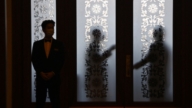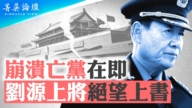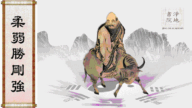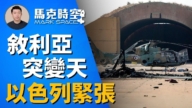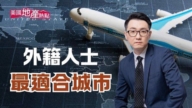【新唐人2013年12月13日讯】岁末年终,英国《金融时报》中文网推出2013中国年度报告,并邀请一些意见领袖针对中国过去一年的重大议题提出看法和讨论。对于中国下一步的变革,北京大学经济学教授提出“改革必须走出理念陷阱”。下面一起去了解。
北京大学经济学教授张维迎提到,中国存在“六大错误的理念陷阱”,而这些理念陷阱严重的阻碍着中国的进步。
他举出的第一个错误理念是“中国模式论”。他认为,现在中国的经济是建立在资本主义自由理念的基础上,“中国人在用电脑、手机,在开汽车,在上网路,这些都是自由体制下创造的,不是非自由体制创造的。”他表示:“中国模式论”是一个非常错误的理念。
第二,有人认为中国过去30多年的经验证明,政治体制不改革,经济体制照样可以市场化,经济仍然可以高增长。而张维迎认为“这个时代已经过去了”。他在文章中阐述“人需要尊严,需要自由,包括言论自由、思想自由、宗教信仰自由的权利,如果始终不承认个人的天赋权利,那任何统治的正当性都会受到怀疑。”
美国南卡罗莱纳大学艾肯商学院教授谢田:“我想张维迎这个观点,可能反映了中国知识界的一个很普遍的困惑现象,就是说,事实上中国知识界很多人都认识到了中共是中国问题的核心。”
第三个错误的理念陷阱则是“多人认为现行体制对既得利益者好”。看看那么多既得利益集团出事了,包括北大毕业的薄熙来,假如不是这样的体制,他能落到这样的下场吗?所以既得利益者不要被眼前利益遮住了双眼,一定要认识到:有人权比有特权好。有特权保证你在位时可以得到别人得不到的东西,没有人权意味着随时处在高度不安全中。
独立评论员张健:“有一句话叫做‘春江水暖鸭先知’,看一看中国所有的贪官,所有掌握中国国有资产的这些人,他们把自己所有的人,为什么背负着‘裸官’的名义,也把自己的子女弄到国外来,这就是给中国的经济和政治给出一个强烈的信号,中国已经是风雨飘摇之中。”
张维迎提出的第四个“理念陷阱”就是“国有企业是共产党执政的基础”。而事实却是“改革开放发展了私有企业,解放了生产力”共产党才维持着政权。张维迎看中国的国有企业,目前已经变成了“负资产”,因为国企的低效率,降低了人民的生活和政府的财力,它们导致的不公平、腐败和道德堕落,引起了人们的强烈不满。
第五,“枪杆子里出政权”的理念错误。张维迎表示,当人们认为某一种政权的合法性或者正当性已经丧失的时候,这种政权有再多的枪杆子也没法维持,因为枪杆子会跟着理念走。
而存在中国的第六个理念陷阱则是“政府的权力越大,政府越强大”。他说,人治的政府看起来强大,其实很脆弱,至少从长期看是这样,因为它得不到老百姓的真正信任。
谢田:“中国需要知识份子站出来振臂一呼,引领全社会向解体中共、恢复自由的方向发展。我想张维迎他的文章,或者报导中所提到的理念问题,实际上就是彻底的清除共产党文化。”
张健:“中国政治改革和体制改革,一直是走的双峰制,而且是越行越远,在这样的一个过程当中,政治改革成了死胡同。无论习、李做了什么,他不能改变共产党本质的一种残暴和一党独裁的特性。如果这个特性改变不了的话,中国的政治改革必然无望。”
张维迎去年已提出“腐败可能亡党,不可能亡国”的看法。他强调,改革要取得成功,就必须还政于民。
采访/陈汉 编辑/黄亿美 后制/钟元
Economist: Six Wrong Concepts Hinder China’s Reform
In the ‘2013 Annual China Report’ published by the Chinese
version of Financial Times, a number of scholars and experts in
economy and politics addressed their opinions about
China issues in 2013.
One Beijing University economist says that reform must
transcend conceptual pitfalls.
The following is our report.
Zhang Weiying is a professor of Economics at
Beijing University.
He says six wrong concepts have China trapped
and seriously impede China’s progress.
The first wrong concept is the “China Model."
Mr. Zhang says China’s current economy takes advantage of
what’s developed on the basis of capitalistic freedoms.
“The Chinese are using the computers, mobile phones,
vehicles, and Internet, the products of free social system.
They are not created by the non-free society."
He added: “The China model” is very much a misconception.
The second error is that some people say experiences over
the past 30 years have proved that without political reform,
China’s market-oriented economy has continued to grow.
Mr. Zhang says that “the time has passed."
He explains: “Human beings need dignity and freedom,
including freedom of speech, freedom of thought,
and the rights and freedom to spiritual belief.
Without recognizing individuals’ natural and legal rights,
the legitimacy of any ruling power will be challenged."
Xie Tian, professor of School of Business at University of
South Carolina Aiken: " Zhang Weiying’s view reflects a
very common debate among Chinese intellectuals.
That is, many of them have recognized that
the CCP is the core of China’s problems."
The third error is that many people believe that the vested
interest groups are taking advantage of the current system.
Mr. Zhang says many such vested interest groups have fallen.
Bo Xilai, a Peking University graduate, would not have had
such a fate if it weren’t for such a system.
He says the vested interest groups should not be blinded
by the immediate interests.
They should recognize: Human rights are better than
the privileged rights.
The privileged rights may ensure interests temporarily, but
without human rights, it also signals insecurity at any time.
Zhang Jian, commentator: “There is a saying, ‘When the river
flows warm in spring, the ducks are the first to know.’
Look at those corrupt officials who own the state’s assets.
They’d rather carry a name of being a ‘naked official’,
they sent their children overseas.
That is a very strong signal about the economy and politics
in China. It is very precarious."
The fourth wrong concept Zhang Weiying proposes is that
state-owned enterprises are the foundation of the CCP ruling.
He says the fact is that, “Private enterprises have
developed because of the reform and opening up,
and thus the productivity was created," and that is how
the Communist regime was maintained.
As Mr. Zhang sees it, China’s state-owned enterprises have
become negative equity for its low efficiency, which has
damaged the livelihood and the financial capacity of the state.
They have created unfairness, corruption and moral depravity,
and have aroused strong dissatisfaction from the people.
The fifth trap is the notion that, “Political power grows out of
the barrel of a gun." Mr. Zhang says that when a regime
has lost its ruling legitimacy or legality, the numbers of
the guns will not help, because the guns will follow the ideas.
The sixth trap is the belief of “the more power the government
hold, the stronger it is."
Mr. Zhang says the man-ruled government looks strong,
but in fact is very fragile, at least in the long run,
because it will not get the people’s full trust.
Xie Tian: “The Chinese intellectuals should stand up and
lead the society to disintegrate the CCP, and to freedom.
I think Zhang Weiying’s article and the concepts he mentioned
relate to the issue of completely cleaning out the CCP culture."
Zhang Jian: “China’s political and institutional reform
have been taking separate paths.
Consequently, they are going farther away from one another.
The political reform is going towards a dead end.
Anything Xi and Li do will not change the brutal dictatorship
and one-party nature of the Communism.
If this characteristic isn’t changed,
then China has no hope of political reform."
Zhang Weiying had brought up his opinion last year that,
“Corruption may collapse the Party, but not China.”
He emphasized that the success of reform
requires returning governing to the people.





